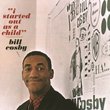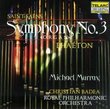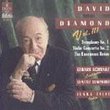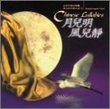A home run for Nashville/Guerrero!
James F. Harrington | Nashville, TN | 09/30/2009
(4 out of 5 stars)
"This disc is fantastic: 2 energetic pieces by a gifted American composer, performed by an excellent orchestra under an exciting new conductor. Sonically, the performances are beautifully captured, top to bottom, and the recording sounds great on 5-channel surround. The nuances the composer points out in the liner notes are easily heard in the mix, and the Nashville Symphony's sound is balanced and full. Just a beautiful recording, and an excellent addition to a growing and impressive catalog from Music City's excellent orchestra.
As for the pieces themselves, the Metropolis Symphony, though not program music, certainly evokes images of the mythology to which it pays tribute: sounds of a busy city, soaring melodic lines, bright horns, and robust orchestration. It is beautifully and ably written.
The piano concerto, Deus Ex Machina, is another brilliantly rendered composition--in response, in the composer's words, to the world of trains. The highlight here is part II: The Train of Tears, "music for a slow-moving funeral train"--specifically, the train that carried Abraham Lincoln's body from Washington, DC, to its final resting place in Illinois. The movement is dark, brooding, lonely, and fatalistic. Terrence Wilson (piano) plays very well throughout the whole emotional and stylistic range of the concerto."
IS IT A BIRD? IS IT A PLANE? IT'S MICHAEL DAUGHERTY!
Steven H. Koenig | Brooklyn, NY, United States | 10/01/2009
(5 out of 5 stars)
"For some reason, I mistakenly connected Michael Daugherty with the Bang On A Can crew. He is post-modern, though, in the sense of using materials from everywhere. From Wikipedia, the background details most revealing about his music was that he learned to play piano himself ("Alexander's Ragtime Band") via the family player-piano, that he wanted to become a composer after hearing a performance of Sam Barber's Piano Concerto, studied with Charles Wuorinen, and had a stint at IRCAM where he encountered Gerard Grisey and Frank Zappa.
Leonard Bernstein told him to combine American popular with concert music. He worked on his Yale dissertation about the connection between Mahler and Ives, and Emerson and Goethe. Well-rounded is what I'm aiming at, musically and otherwise. Clearly you'd want to be seated next to him at a dinner party. But how goes the music?
Wonderfully! This will be on my 2009 Best List. The slipcase cover of Metropolis Symphony loudly declares its intent and content: a red-caped Superman-like character in rapid flight over a metropolitan skyline. The composition is in five movements, they are non-programmatic, and each may be performed (or, at home, played) individually.
"Lexx" opens with a police whistle; right away there's trouble afoot. There's only the broadest minimalist reference of a broadly repeating phrase, and just for a minute or so.
"Krypton" opens with a police siren, then darkly ominous strings, very realistically captured fire bells, triangles and other percussive materials. Think: Appalachian Spring gone askew thanks to spiraling string glissandi and Mary Kathryn Van Osdale's violin, ending with a siren going off in homage to Varèse's Ionisation.
"MXYZPTLK" is more chamber-like with its flutes and piccolo and ends with a crack. "Oh, Lois!" offers swirling strings and that wind-swirly-whistling thing (forgive my technical exactitude), following by a manic brass chase that starts to sound like the well-known bumblebee flight, then quickly shifts off into it's own wild-ride.
"Red Cape Tango" is appropriately slow and insinuating, with a reprise of the previous bells.
Deus ex Machina for Piano and Orchestra: It begins with Henry Cowell-like strums inside the piano, followed by an intricate, rapidly-ascending line that simultaneously recalls Nancarrow and ragtime. The orchestra with piano is truly grand without being grandiose or bombastic; a great accomplishment. The piano solos evoke tender emotions, until it thunders up spiral staircases to Hollywood action-film evocation. You hear Barber, you hear lots of Bernstein, some Rachmaninoff in the piano.
Each of the movements is meant to be "a musical response to the world of trains." You already know the famous works which do this.
The first movement, "Fast Forward," stands up to all of them. It's very loud, exciting stuff, inspired by Italian futurist painters. The "Train of Tears" uses "Taps," what the composer refers to as his own "ghost melody" and other elements to evoke Lincoln's funeral train.
The closer, "Night Steam," uses 20th Century American-style rhythms and speed in response to photographs of the motion of the last steam locomotives. Terrence Wilson does a fine job with the modernist piano part; I'd love to hear him tackle a Rachmaninoff concerto or the Barber sonata.
I'm not rushing this review for musical lack of quality, but rather, the adrenaline each work brought out in me forces me to walk away from the keyboard now, sit in front of the audio system, and enjoy another go-round for pure, close-listening pleasure.
If you've read this far, just get it. Worth more than twice the cost of Naxos' list price of nine bucks, available in NYC for seven or less. I look forward to hearing more of his Naxos recordings, and seeing his opera Jackie-O.
Editor, AcousticLevitation dot org
"
A Minority View -- All Effects and Little Substance
J Scott Morrison | Middlebury VT, USA | 10/12/2009
(2 out of 5 stars)
"In spite of Michael Daugherty being the hot new thing in American music, I find his 'Metropolis', the work which first brought him to wider attention, to be gaudy and vulgar. There is no question that he is a master of orchestral effects, although I could do with less use of police whistles, sirens, whips and flexatones. The comic book ethos of 'Metropolis' is, for this over-seventy listener, barely tolerable. I am more than willing to accept that there may be those for whom this music is appealing in its wacky emptiness. But really what is there under its shiny surface? Not much that I can find -- and I've been trying for the past couple of days (days I'll never get back, alas) to discover any deeper meaning to the music without any success. I must be missing something.
'Deus ex Machina' is a piano concerto in the usual three movements which is, according to the composer, a response to the world of trains. Villa Lobos and Honegger did trains better, I fear. The work's sound world is not all that different from that of 'Metropolis' and I found it a great bore.
Guerrero and the Nashville Symphony outdo themselves and give these pieces exceptional performances.
Scott Morrison
"
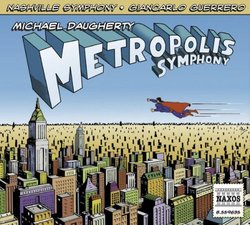

 Track Listings (8) - Disc #1
Track Listings (8) - Disc #1